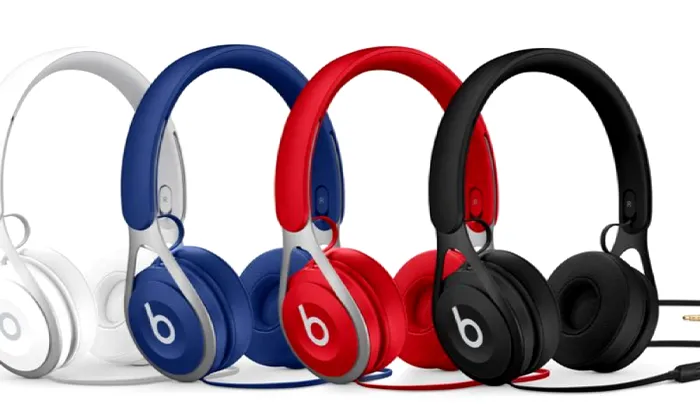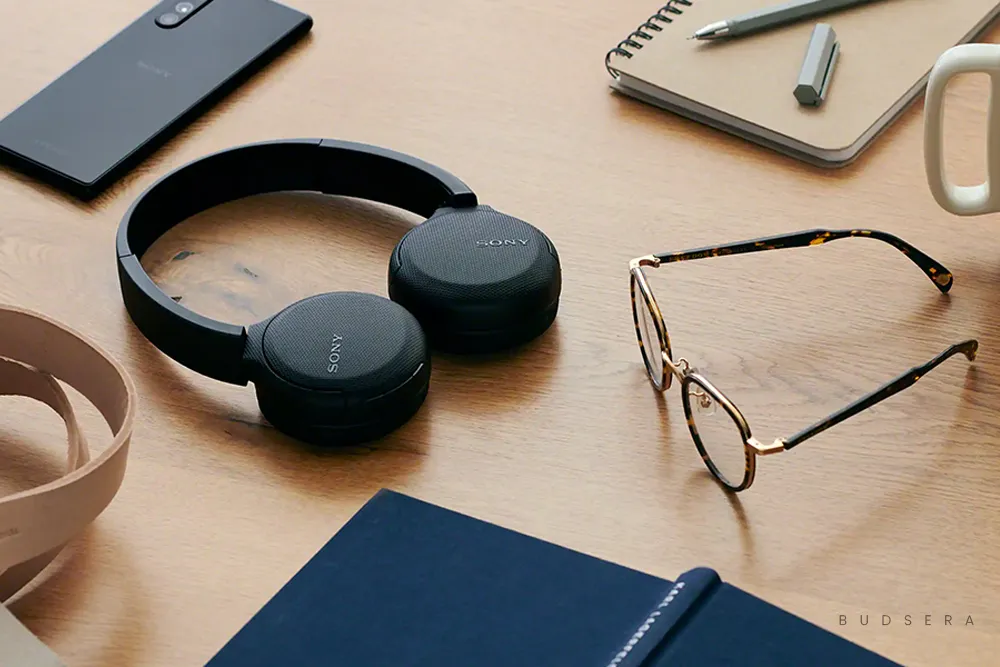Wireless headphones have become a ubiquitous sight in our daily lives, offering the convenience of wireless connectivity and freeing us from the hassle of tangled wires. However, have you ever wondered if you can use your wireless headphones as wired headphones in case of low battery or any other reasons?
The answer is YES! In this blog post, we will explore the possibility of using wireless headphones as wired headphones and how you can do it. So, let’s dive in and find out more!
Can Bluetooth Headphones Also be Wired?
Yes, many Bluetooth headphones can also be used as wired headphones. This feature is becoming more common in modern headphones as it offers users the best of both worlds.
The convenience of wireless connectivity and the option to use them as wired headphones in case of low battery or any other issues. To use Bluetooth headphones as wired headphones, you will need to have a headphone jack or an audio cable that is compatible with your headphones.
Simply connect the cable to your headphones and the other end to your device, and you are good to go! The sound quality of your headphones will remain the same, as the audio is being transmitted through the wired connection.
This added versatility makes Bluetooth headphones a great option for those who want the convenience of wireless technology and the peace of mind that comes with having a backup wired connection.
Why Do Wired Headphones Sound better than Bluetooth?
Wired headphones can sound better than Bluetooth headphones for several reasons. One of the main reasons is that wired connections transmit audio data directly to the headphones without the need for any intermediate processing.
This results in a more direct and lossless audio transmission, which can lead to a higher-quality sound. Additionally, wired connections don’t have to deal with the compression and latency issues that can affect Bluetooth audio.
Bluetooth audio compression algorithms can reduce the quality of audio, while latency can cause a noticeable delay between the audio and what you see on screen. Furthermore, the quality of the audio cable and the type of audio jack used can also have an impact on sound quality.
For example, a high-quality audio cable can help reduce noise and interference, leading to a clearer and more accurate sound. All these factors can contribute to the differences in sound quality between wired and Bluetooth headphones.

Bluetooth Headphones Sound Quality
However, it’s important to note that advances in Bluetooth technology have greatly improved the sound quality of Bluetooth headphones in recent years.
Many modern Bluetooth headphones now feature high-quality audio codecs and advanced noise-cancellation technology, which can significantly enhance the sound quality of your audio.
Additionally, some premium Bluetooth headphones have been designed to deliver a sound experience that is on par with wired headphones. As a result, many people now prefer Bluetooth headphones over wired headphones due to the convenience and freedom they offer.
So, while there are still some differences in sound quality between wired and Bluetooth headphones, many Bluetooth headphones now sound great and offer a high-quality listening experience.
Do Bluetooth Headphones Drain More Battery of Your phone?
Yes, using Bluetooth headphones can have an impact on your phone’s battery life. When you use Bluetooth headphones, your phone has to constantly send audio data to the headphones, which can drain your phone’s battery faster.
Some Bluetooth headphones may also have a battery that needs to be charged, further adding to the impact on your phone’s battery life. However, it’s important to note that the impact on your phone’s battery life will depend on several factors, such as the quality of the Bluetooth connection, the codec used, and the volume level at which you listen to your audio.
Furthermore, newer phones have more efficient Bluetooth chips and improved battery technology, which can help minimize the impact on your phone’s battery life. So, while Bluetooth headphones can have an impact on your phone’s battery life, it’s not necessarily a significant impact and can be managed with good battery management practices.
5 Bluetooth Headphones that can also be used as Wired
| Headset Model | Wired Compatibility | See Price |
|---|---|---|
| Sony WH-1000XM4 | YES | See Price Here |
| Bose Noise Cancelling Headphones 700 | YES | See Price Here |
| Apple AirPods Max | YES | See Price Here |
| Beats Solo3 | YES | See Price Here |
| Philips PH805 | YES | See Price Here |
What are the Disadvantages of Bluetooth Headsets?
Bluetooth headphones have become a popular choice for many people due to their convenience and versatility. However, there are several disadvantages to using Bluetooth headphones that should be taken into consideration.
Latency
One of the main disadvantages of Bluetooth headphones is latency. This refers to the delay between the audio being sent from the source device and being received by the headphones, which can result in an out-of-sync audio experience.
Limited Range
Bluetooth has a limited range and can be affected by obstacles such as walls and other electronic devices, which can cause audio dropouts and interruptions.
Battery Life
Bluetooth headphones require a battery to operate wirelessly, which can run out of charge during use and limit the overall listening experience.
Compression
Bluetooth audio compression algorithms can result in a reduction in sound quality, especially when compared to wired headphones.
Cost
Bluetooth headphones can be more expensive than traditional wired headphones, especially for premium models with advanced features such as noise-cancellation technology.
Interference
Bluetooth signals can be disrupted by other electronic devices, leading to audio dropouts and interruptions.
Limited Codec Support
Not all Bluetooth headphones support the latest audio codecs, which can limit the overall audio quality and functionality.
Wired vs. Wireless Headphones
When choosing between wired and wireless headphones, it’s important to consider your personal needs and preferences. Wired headphones tend to offer better sound quality and are generally more affordable, but they can be limiting in terms of mobility and freedom of movement.
On the other hand, wireless headphones offer greater freedom of movement and convenience but may have a lower sound quality and come at a higher price point.
Which One’s for You?
In the end, both wired and wireless headphones have their pros and cons. It depends on your lifestyle, preferences, and priorities. If you’re a frequent traveler who enjoys freedom of movement, wireless headphones are a great option.
If you’re an audiophile who prioritizes sound quality or a gamer who can’t afford latency issues, then wired headphones are the way to go.
If you’re working in an office, wired headphones are more convenient and cost-effective, while if you’re an athlete with an active lifestyle, wireless headphones are perfect for you.
The best headphones for you are the ones that align with your needs and preferences.
Can I Convert Wireless Headphones to Wired?
Yes, it is possible to convert your Bluetooth headphones into a wired ones, but it is not recommended, especially if you are not skilled in electronics and modifications.
Converting a Bluetooth headset to a wired one requires technical knowledge and may cause damage to your headphones. Instead, it is advisable to invest in a wired headset if you need one. You can easily find good quality wired in-ear headphones for under $50.
Having both options will give you the flexibility to switch between the two depending on your needs and battery life. This way, you’ll always have a backup option to fall back on when needed.
Additionally, owning both types of headphones also ensures that you’ll always have the best listening experience for your specific scenario, be it the convenience of wireless headphones or the reliability of wired ones.
How Long is the Battery Life on Bluetooth Headphones?
The battery life of Bluetooth headphones can vary greatly depending on several factors, such as the brand, model, and usage. On average, Bluetooth headphones can last anywhere from 5 hours to 20 hours on a single charge. High-end headphones often have longer battery life than budget options, and using features like noise canceling can also affect battery life. It’s important to check the manufacturer’s specifications for the exact battery life of a particular pair of Bluetooth headphones.
How Long do Bluetooth Headphones Take to Charge?
The time it takes to charge Bluetooth headphones depends on the battery capacity of the headphones and the charging method used. On average, it takes about 2-3 hours to fully charge a typical pair of Bluetooth headphones using a standard USB cable.
However, some headphones may take a longer or shorter time to charge, depending on their battery capacity and the charging speed. Some premium headphones may also come with fast charging options, which can reduce the charging time to as little as 15 minutes.
Do Bluetooth Headphones Have a Microphone?
Yes, most Bluetooth headphones have a built-in microphone that allows for hands-free calling and voice commands. The microphone quality varies from model to model, but many of the latest headphones have high-quality microphones that provide clear and crisp sound for calls.
Conclusion
In conclusion, while it is possible to use wireless headphones as wired headphones, the process involves some technicalities that may not be ideal for everyone. Furthermore, it’s important to consider the battery life of wireless headphones and the time it takes to charge.
Some wireless headphones may not have a built-in microphone or the required audio jack to connect with wired devices. It’s always best to choose a headset that fits your needs and preferences, whether it’s wired or wireless. Investing in a separate wired headset might be more convenient in the long run, as you can use it when the battery of your wireless headphones runs out.
- Charging Bluetooth Headphones During Use: Is It Possible? - January 9, 2024
- Why Over-Ear Headphones Best for Hearing Health? (7 Reasons) - December 12, 2023
- Fixing the Bose Earbuds Not Charging in Case Problem: Solutions That Work - November 24, 2023
